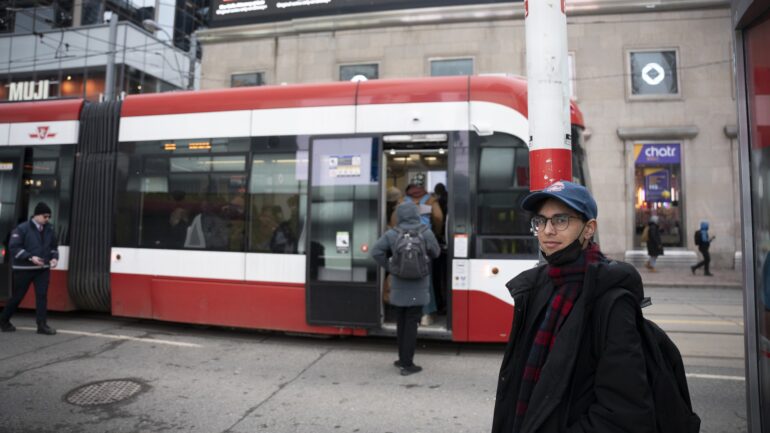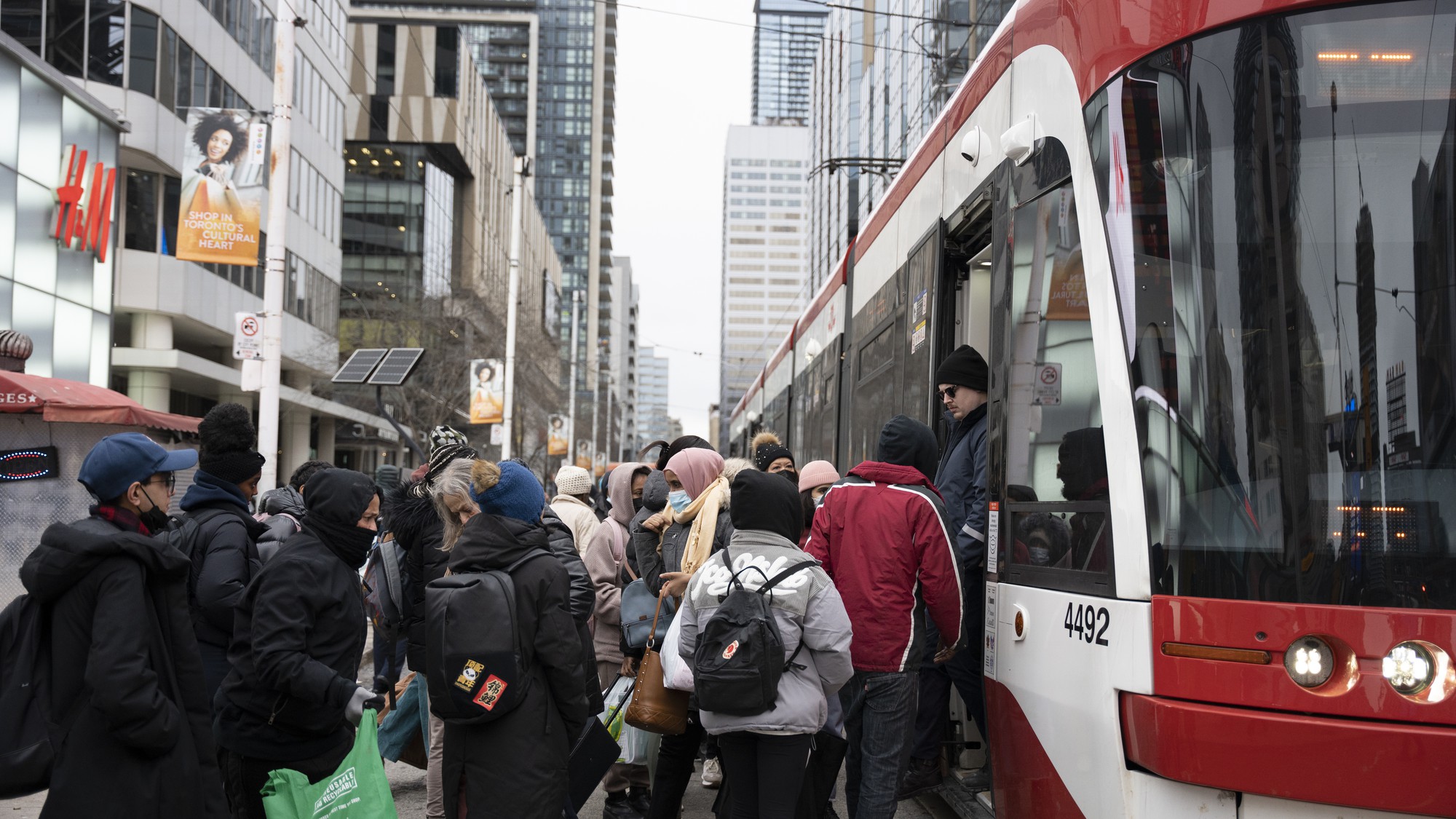When travelling home at night, August Pantitlán Puranauth sits next to the emergency alarm when they wait for the subway train to arrive because that’s where they feel safest.
“It’s an uncomfortable situation. There’s no staff presence in these large, empty stations so it’s not a safe environment for people to be in,” the Toronto Metropolitan University student said. “I am completely transit-dependent. I’ll just have to go through that hardship.”
The current average wait-time at night is eight minutes for a subway and 30 minutes for a bus. Puranauth, who is also a TTCriders organizer, is concerned that they will be expected to wait longer with the proposed transit plans to increase fares and cut services.
Mayor John Tory announced on Jan. 4 that the City of Toronto would like to invest $53 million into the Toronto Transit Commission’s (TTC) 2023 budget to address safety and cleanliness. However, the proposal will also increase fares by 10 cents and reduce services to nine per cent less than what they were before the COVID-19 pandemic.
Puranauth said that the service cuts will decrease safety because users will be left in “vulnerable situations” for longer periods of time.
“People who are often waiting late at night for buses for up to half an hour, they’re not very safe,” they said. “I think the fundamentals of safety are just completely wrong in this budget and it should just be reevaluated.”
TTC representative Stuart Green said the service would be protected during the busiest times and the busiest routes. But he said that fare increases and service cuts are needed because the ridership level is currently at 70 per cent of pre-pandemic levels.
“Lower ridership means lower revenue,” Green said. “We’re adjusting service to meet demand.”

August Pantitlán Puranauth, a Toronto Metropolitan University student and TTCriders organizer, stands at a bus stop near Dundas Square. Photo credit: Andre La Rosa-Rodriguez
However, Puranauth highlighted the steady increase in ridership that is happening outside the rush hours because of a shift in the 9-to-5 schedule to remote alternatives in certain workplaces.
While they said peak hours are still very busy, they said the increase in off hours is a reflection of areas that haven’t changed like essential workers who work long or night shifts, students who take classes in the evenings, and people who go out to get their groceries and do other day-to-day tasks.
“The mayor is proposing service cuts during these times where the highest ridership has recovered,” Puranauth said. “There’s definitely a change in ridership patterns, but the city’s direction does not reflect that. They’re not adapting to the change in riders’ behaviours.”
Transit advocate Steve Munro has criticized the TTC’s lack of clarification on the details of their service cuts, which has left many daily users concerned about whether they would be affected.
“It may turn out that the cuts are not as bad [they] sound, I guess we’ll have to wait and see,” he said. “But they basically left the field open for people to speculate about what’s going to happen and to what route. I think this has been a communications disaster.”
The TTC is planning to use the increased budget and extra revenue from fare increases and service cuts to hire more special constables to patrol the stations as a means to address safety.
Amid a string of violent incidents on Toronto’s transit platforms at the start of 2023, the city has already hired 50 new constables to fill all its vacant positions. Eighty more officers are set to be deployed across the stations.
However, Puranauth said an increased police presence is creating an anxious and stressful environment.
“You will often see a number of fare inspectors or constables gathered in one area and they’re all huddled together going after riders,” they said. “They want to have staff presence throughout the system, not more police presence.”
In response to a call for more support approach from TTC services, the city will be providing de-escalation training to staff, adding safety ambassadors and security guards.
“The TTC must be safe for everyone, passengers, and transit employees.” Tory said at a press conference on Jan. 27. “We’re continuing to work with the TTC, Toronto Police, and TTC union leadership to make sure we are immediately addressing safety concerns.”
The 2023 proposed budget remains on the table despite the changes that have been placed on the TTC. The City Council will hold a special meeting with Tory on Feb. 15 to discuss the details of the plan.
If the budget is approved, it will take effect on April 3.

